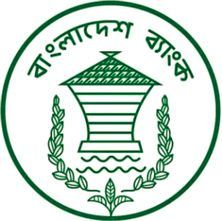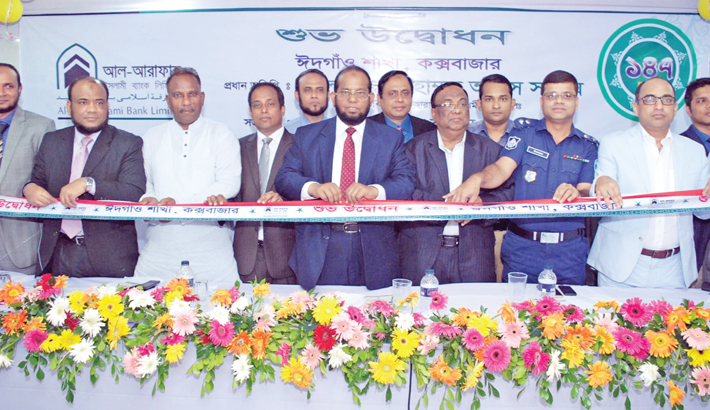Call to give tax incentives to plastic card users
The volume of plastic money transactions has not yet reached satisfactory level despite a rise over the years, speakers said at a programme on Sunday.
They also suggested providing tax incentives for plastic card users to help boost digital payments and ensure a cashless economy in the country.
According to them, along with other initiatives, tax incentives by the government can attract a good number of people to transact through digital means.
They made the observations at an award-giving ceremony titled 'Mastercard Announces Winners for 'Experience Paris with Mastercard Campaign' held at a city hotel.
Mastercard gave award to 30 Mastercard-Branded Credit, Debit or Prepaid Cardholders on the basis of points for retail or online transactions of Tk 1,000 or above during the campaign period between May 15 and June 30.
AKM Fazlul Haque got the grand prize of an all-expenses paid couple trip to Paris.
Executive Director of the Bangladesh Bank Subhankar Saha attended the programme as the chief guest.
The programme was also attended, among others, by country manager of Mastercard Bangladesh Syed Mohammad Kamal, managing director of Prime Bank Limited Ahmed Kamal Khan Chowdhury and deputy managing directors of different banks.
Speaking on the occasion, Mr Subhankar Saha said Bangladesh Bank has long been trying to ensure less use of cash.
He said there are a good number of cardholders in the country. Now there are 9.0 million debit cardholders and 1 million credit cardholders here.
"We see that though online transaction is increasing in the country, its rate is not satisfactory," he said.
He said in India, electronic payments have increased around fivefold after demonetisation of its large notes.
"It can be thought here to increase digital payments," he added.
Mr Kamal Khan said the government should give incentives on electronic payments to increase its rate in the country.
"The Indian government provides incentives on electronic payments and we hope our government will also take such initiative today or tomorrow," he added.
Mr Syed Kamal said the main objective of the campaign was to promote electronic payments in the country.
BB raises NRBs' home loan debt-equity ratio to 75:25
The non-resident Bangladeshis (NRBs) can obtain housing finance facility at a maximum debt-equity ratio of 75:25 instead of the existing debt-equity ratio of 50:50.
Bangladesh Bank (BB) issued a circular in this connection on Sunday.
Bankers at a roundtable on Thursday urged the government to allow a debt-equity ratio of 80:20 for home loan to the NRBs, so that they show more interest to invest in home building in the country.
 They said it would also help to boost inward remittance. On December 06, 2015, BB issued a circular on facilitating the NRBs to purchase apartment or land through taking loans in Bangladesh currency.
They said it would also help to boost inward remittance. On December 06, 2015, BB issued a circular on facilitating the NRBs to purchase apartment or land through taking loans in Bangladesh currency.
The circular, issued by its Foreign Exchange Policy Department, said Authorised Dealers (ADs) may extend mortgage loans in Taka to the NRBs working abroad for housing purpose of in Bangladesh.
The home loan would be issued in line with the existing guidelines on Prudential Regulations for Consumer Financing, issued by Banking Regulation and Policy Department, it also said.
The housing finance facility would be provided to the NRBs at a maximum debt-equity ratio of 50:50, which means that a bank will give Tk 50, if an expatriate deposits Tk 50 against the loan.
The equity portion would be provided by the borrower or the NRBs, either through their inward remittance or through debits to their non-resident bank accounts fed by foreign sources.
The ADs may obtain securities and savings instruments, held by NRBs in Bangladesh, as additional collateral beside registered mortgage of the house with registered power of attorney.
The repayment against the loans would be made out of inward remittance. BB has asked the scheduled banks to develop Product Programme Guidelines for the NRBs' housing finance.
No BD bank ready to face sudden data centre collapse
No bank in Bangladesh is ready to recover from a sudden data centre collapse due to natural calamities while most not even capable of turning around instantly from a major digital shutdown, a survey finds.
The stunning revelation was made Sunday at a workshop on cyber-threat readiness of banks, based on a recent industry-wide study on the state of cyber-security of banks in Bangladesh.
 Bangladesh Institute of Bank Management (BIBM) organised the workshop in the capital, where the event of Bangladesh Bank's reserve stealing by an international gang of hackers and its aftermath came up prominently.
Bangladesh Institute of Bank Management (BIBM) organised the workshop in the capital, where the event of Bangladesh Bank's reserve stealing by an international gang of hackers and its aftermath came up prominently.
"Only 20 banks out of 56 have the capacity to recover from a major shutdown like corruption of database and storage-or data-centre damage caused by fire," said Abul Kashem Md. Shirin, Managing Director and CEO of Dutch-Bangla Bank Limited.
"Meanwhile, there is not a single bank which can recover from Data Centre or near Data Centre collapse due to earthquake, flood or cyclone," he cautioned, on the basis of the results of the industry-wide research.
The findings show that while all the banks in the country are ready to overcome any simple breakdown caused by the malfunctioning of server, network equipment or UPS, majority of them are not capable of tackling any major cyber-threat.
The workshop also identified various dimensions of threats or forgeries that can occur within the space of mobile financial services, ATM, Point of Sales (PoS), e-commerce or credit and debit card.
"One good example of such threat is rampant digital hundi through MFS which resulted in 17 per cent fall in remittance last year," Shirin said.
"In addition, card cloning, ATM skimming and e-commerce-related frauds are also becoming quite prevalent, which can be a cause of major headache for the banking industry," he added.
The DBBL Managing Director, however, finds a blessing in disguise for the bankers in Bangladesh. He said as the Bangladeshi Taka (BDT) is non-convertible, the country is not quite attractive to the hackers for targeting banks and financial entities.
"That is why Bangladesh has witnessed relatively few instances of financial cyber-crime, although SWIFT is a 'hole' through which attackers can transfer US Dollar."
Focusing on the global scenario of cyber-crime, it was informed in the workshop that around one billion accounts and records were compromised around the world in 2016 while the total cost of ransomware attacks during the year was US$ 1.0 billion.
"It is estimated that cyber-crime damages will cost US$ 6.0 trillion globally by 2021 from US$ 3.0 trillion back in 2015," said Amirul I. Chowdhury, CEO of Trans IT Solution.
Bangladesh Bank Governor Fazle Kabir, who attended the event as chief guest, said the central bank is currently emphasizing the establishment of comprehensive IT governance and IT risk-management frameworks.
Referring to the US$ 81 million central bank heist last year, the BB Governor said the event was a severe wakeup call for the entire banking industry in Bangladesh.
"Since then, Bangladesh Bank has already worked to strengthen its IT security and IT risk management while we have also ensured new ICT-security guidelines for banks and FIs," he told the function about the cyber-safety measures being taken following the stunning theft of Bangladesh's reserves from the US Reserve Bank in New York.
Chairman of the Association of Bankers, Bangladesh Anis A Khan and BIBM Director-General Dr. Toufic Ahmad Choudhury also spoke.
Bank Asia, UNDP sign MoU on social safety net payments
Bank Asia and the United Nations Development Programme (UNDP) on Sunday signed a Memorandum of Understanding (MoU) to jointly support easier access to social safety net payments through digital financial inclusion.This new partnership is a ground breaking initiative aimed at bringing financial safety payments and financial services at the doorstep including providing financial literacy, which will specifically benefit village population, said a press release issued by the UNDP.
“In the continuous efforts to reach Bangladesh’s development goals within the Agenda 2030 and the 7th Five-Year Plan, involvement of all sectors, especially the private sector is essential,” said Sudipto Mukerjee, UNDP Bangladesh Country Director.
“This is a prime example of the private sector designing inclusive business models and services moving beyond corporate banking business. The partnership will expand bank account adoption, consequently accelerating the pathway out of poverty for approximately 10,000 people in the first two years,” said Md.
Arfan Ali, President and Managing Director, Bank Asia.
Bank Asia Chairman A. Rouf Chowdhury said, “Poverty reduction is the core mission of Bank Asia. In line with this our bank has been working all over the country for financial inclusion of unbanked population using its digital banking platform and thus trying to make a tangible turn in the development of national economy.”
The initial pilot phase of this project will be for a period of one year covering one district. During this period, a research study will be conducted to tailor a mobile application for digital financial services developed by Bank Asia specifically for this target group.
At the community level within the pilot district, the project will ensure that all potential beneficiaries will have information about available services, knowledge on how to use them and understand the benefits of receiving safety net payments through digital services. The pilot district will be selected by Bank Asia and UNDP, during the research phase.
Furthermore, to ensure beneficiaries’ responsible management of financial resources, Bank Asia will invest in the development of the financial literacy training. This will help specifically rural households to manage their finances in a sustainable manner, and will contribute in improving their chances of getting out of poverty.
The financial literacy training will be complemented by additional financial services such as cash-withdrawal, point-of-sale transactions, micro-credit disbursement.
“At a global level disbursement of safety net payments through digital tools are becoming more and more popular. However, we want to go beyond only facilitating access to services and we want to maximize the long-term impact. With this partnership, we will ensure that people are exposed to financial literacy training, which is expected to impact daily decisions an average family makes when trying to balance a budget for living and livelihood and ensure an income at retirement,” said Sudipto Mukerjee, UNDP Bangladesh Country Director. Upon successful execution of the pilot phase, Bank Asia and UNDP will jointly explore the opportunities to scale up this initiative nationwide.
The signing of this agreement is yet another example of stretching partnerships between UNDP and private sector under the umbrella of the “Innovation Hub” - an alternative partnership model for Private Sector engagement launched in 2017 by UNDP and the United Nations Volunteer (UNV) Programme.
News:Daily sun/24-jul-2017Al-Arafah Bank opens branch at Cox’s Bazar

Al-Arafah Islami Bank Vice Chairman Alhajj Mohammad Abdus Salam inaugurates a new branch of the bank at Eidgao in Cox’s Bazar on Sunday.Al-Arafah Islami Bank Limited opened 147th branch of the bank at Eidgao in Cox’s Bazar on Sunday.
Vice Chairman Alhajj Mohammad Abdus Salam inaugurated the new branch as chief guest, said a press release.
Managing Director Md Habibur Rahman presided over the ceremony while Police Super of Cox’s Bazar AKM Iqbal Hossain and Director of Union Bank Md. Fazle Morshed were present as special guests.
Senior Vice President and Head of AIBL Chittagong Zone Mohammad Azam delivered the welcome speech.
While speaking Vice Chairman Alhajj Mohammad Abdus Salam said Al-Arafah Islami Bank was established not for making profit by doing business but for the welfare of the society.
News:Daily sun/24-jul-2017


